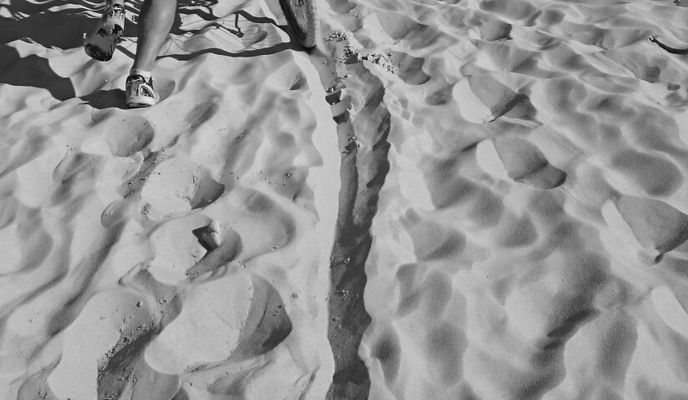
Cycling in Hungary
Discover a map of 163,292 cycling routes and bike trails in Hungary, created by our community.
Region portrait
Get to know Hungary
Find and create the best bike routes in Hungary, a country known for its breathtaking architecture, folk art and thermal baths, thanks to the bike route planner. The country is the home of many world heritage sites, UNESCO biosphere reserves, the world’s second largest thermal lake (lake Héviz) and the biggest lake of Middle Europe, Lake Balaton. Those exploring the country by bike receive an especially lively impression of nature’s beauty and the fascinating cultural monuments. Water lovers should cycle along the in Hungary’s Southwest, as the trail is scenically beautiful and offers the opportunity to travel to the capital Budapest as well as to other cities.
9,863,418 km
Tracked distance
163,292
Cycle routes
10 million
Population
Community
Most active users in Hungary
Handpicked routes
Discover Hungary through these collections
From our community
The best bike routes in Hungary
Majdnem körtúra képekkel
Cycling route in Kismaros, Pest megye, Hungary
- 33.5 km
- Distance
- 452 m
- Ascent
- 455 m
- Descent
VELOREGIO_14.
Cycling route in Kőszeg, Vas, Hungary
- 33.7 km
- Distance
- 636 m
- Ascent
- 635 m
- Descent
Felfedező út Solymár felé
Cycling route in Budapest XII. kerület, Budapest főváros, Hungary
- 96.9 km
- Distance
- 772 m
- Ascent
- 781 m
- Descent
Piknik a Mélyponton (75,8m tengerszint felett)
Cycling route in Szeged, Csongrád megye, Hungary
- 23.8 km
- Distance
- 25 m
- Ascent
- 27 m
- Descent
Discover more routes
 VELOREGIO_06.
VELOREGIO_06.- Distance
- 52.9 km
- Ascent
- 109 m
- Descent
- 112 m
- Location
- Szombathely, Vas, Hungary
 micsodakirándulás
micsodakirándulás- Distance
- 1,253.9 km
- Ascent
- 3,053 m
- Descent
- 3,125 m
- Location
- Budapest XIV. kerület, Budapest főváros, Hungary
 Budapest - Balatonfenyves (BuBa+Balatonkör)
Budapest - Balatonfenyves (BuBa+Balatonkör)- Distance
- 190.1 km
- Ascent
- 883 m
- Descent
- 879 m
- Location
- Budapest XI. kerület, Budapest főváros, Hungary
 pap-rét melegítő
pap-rét melegítő- Distance
- 18.6 km
- Ascent
- 394 m
- Descent
- 390 m
- Location
- Szentendre, Pest megye, Hungary
 Első negyvenes
Első negyvenes- Distance
- 40.9 km
- Ascent
- 1,974 m
- Descent
- 1,987 m
- Location
- Balatonfüred, Veszprém megye, Hungary
 4. Budapest-Szob
4. Budapest-Szob- Distance
- 76.3 km
- Ascent
- 299 m
- Descent
- 311 m
- Location
- Budapest VIII. kerület, Budapest főváros, Hungary
 DB-Tt1 | Tisza-tó (kicsi)
DB-Tt1 | Tisza-tó (kicsi)- Distance
- 66.4 km
- Ascent
- 28 m
- Descent
- 30 m
- Location
- Tiszafüred, Jász-Nagykun-Szolnok, Hungary
 HHH gyors
HHH gyors- Distance
- 16 km
- Ascent
- 477 m
- Descent
- 477 m
- Location
- Budapest III. kerület, Budapest főváros, Hungary
Highlights
- Biking in the Hungarian Puszta: The steppe-like, flat landscape without trees can be easily explored by bike.
- Empress Elisabeth of Austria, better known as Sisi, is famous for her big love for Hungary. Her castle Gödöllö is a highlight of the Hungarian baroque architecture, only 28 kilometres away from Budapest and is easily accessible by bike.
- The river Danube runs through Hungary’s capital Budapest and divides the city in two parts, Buda and Pest. There are wide-spanning cycle tracks along the Danube that also pass several sights. When planning a longer tour one can just follow the cycle tracks upstream towards the Danube Bend or downstream towards the Danube Füred.
Tips
- Since 2007, there cyclists are obligated to wear a safety vest after dusk and during bad visibility.
- In general, you can also travel Hungary by bike during the summer. In spring and fall, there is less traffic on the streets which can prove to be quite pleasant.
- The train is the best means of transport for transporting the bike over big distances. There’s usually an area for bikes available, otherwise, it’s allowed to store the bike in the train’s first or last waggon.
See where people are biking in Hungary
Popular cycling regions in Hungary
















